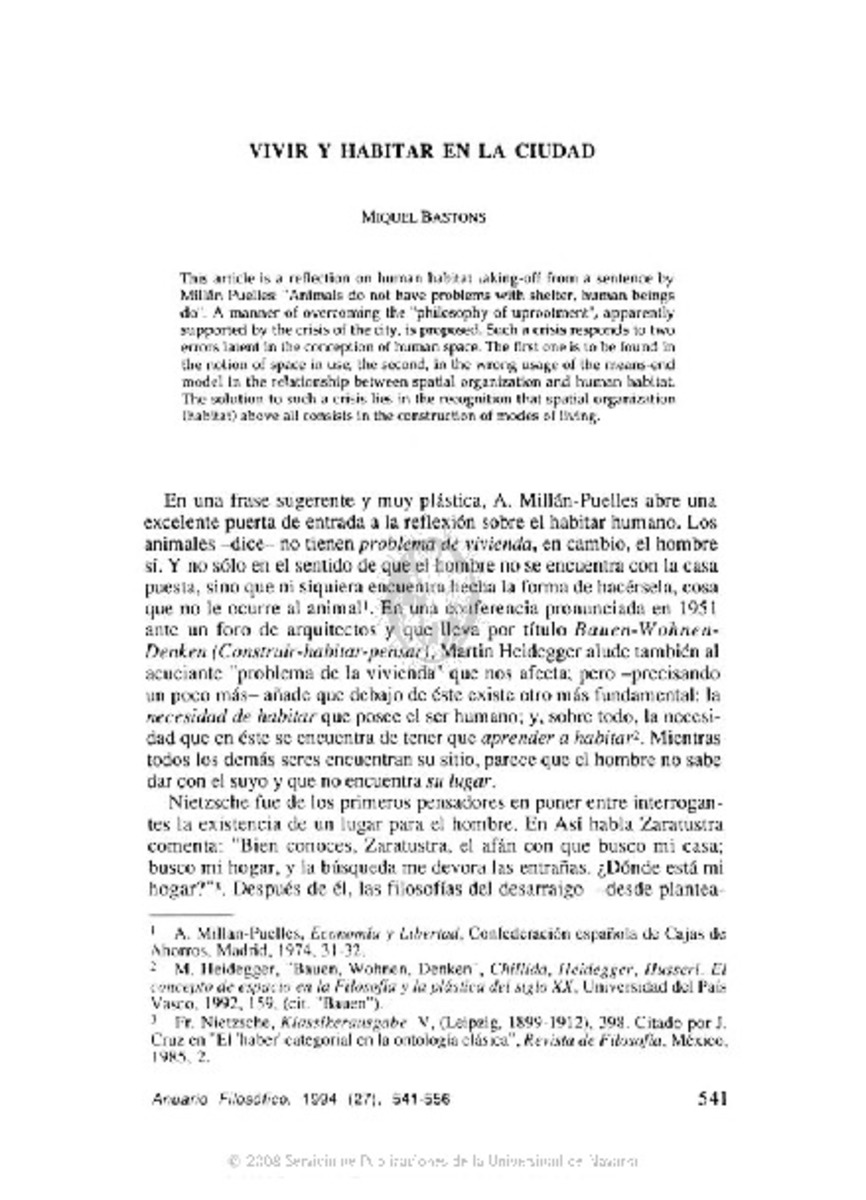Full metadata record
| DC Field | Value | Language |
|---|---|---|
| dc.creator | Bastons, M. (Miquel) | |
| dc.date.accessioned | 2009-02-18T12:03:41Z | - |
| dc.date.available | 2009-02-18T12:03:41Z | - |
| dc.date.issued | 1994 | - |
| dc.identifier.citation | Anuario Filosófico, 1994 (27), 541 - 556 | - |
| dc.identifier.uri | https://hdl.handle.net/10171/3300 | - |
| dc.description.abstract | This article is a reflection on human habitat iaking-off from a sentence by Millán Puelles: "Animáis do not have problems with shelter, human beings do". A manner of overcoming the "philosophy of uprootment", apparently supported by the crisis of the city, is proposed. Such a crisis responds to two errors latent in the conception of human space. The first one is to be found in the notion of space in use; the second, in the wrong usage of the means-end model in the relationship between spatial organization and human habitat. The solution to such a crisis lies in the recognition that spatial organization (habitat) above all consists in the construction of modes of living. | es_ES |
| dc.language.iso | spa | es_ES |
| dc.rights | info:eu-repo/semantics/openAccess | es_ES |
| dc.subject | Vivir | es_ES |
| dc.subject | Habitar | es_ES |
| dc.subject | Ciudad | es_ES |
| dc.subject | Millán-Puelles, Antonio | es_ES |
| dc.title | Vivir y habitar en la ciudad | es_ES |
| dc.type | info:eu-repo/semantics/review | es_ES |
| dc.identifier.doi | 10.15581/009.27.29859 | es_ES |
Files in This Item:
Statistics and impact
Items in Dadun are protected by copyright, with all rights reserved, unless otherwise indicated.






